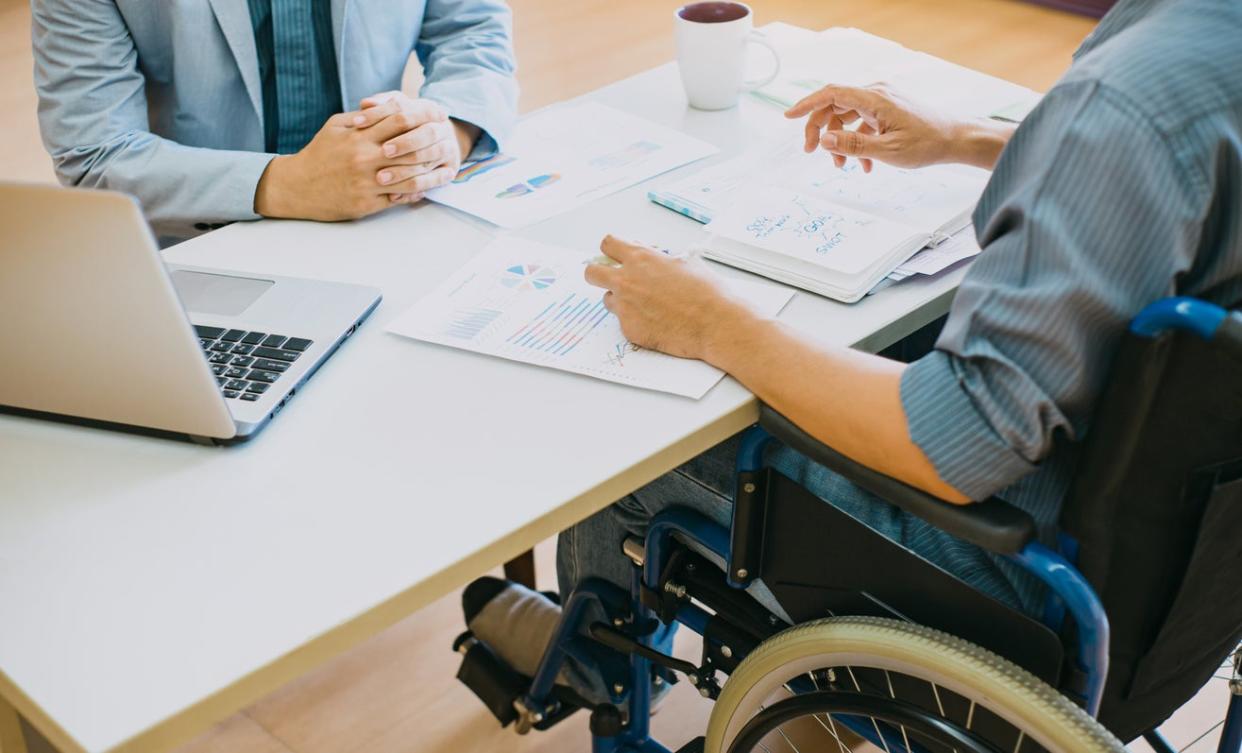The justice system has to stop ignoring disability hate crime

The EHRC has previously stated that a ‘culture of disbelief’ and ‘systemic institutional failures’ lies within the criminal justice system
(Getty Images/iStockphoto)“You’ve brought all of this s*** on yourself. It’s only your neighbour that stopped me burning your house down. [You] f****** scumbag,” shouted Ailsa’s neighbour - on camera - targeting her for her disability.
“I tried to explain to different authorities how bad this was, but they couldn’t wrap their head around it, or the combination of all of the events,” Ailsa told the camera on the recent BBC show, Targeted: The Truth About Disability Hate Crime. Her voice shook as she spoke. She was visibly exhausted by the strain of recounting the events of the past few years.
Ailsa, a former housing manager, moved into a specialist bungalow after a road traffic accident left her in a wheelchair. The accessible features in her new home made her life more manageable and allowed for a degree of independence, but her neighbours accused her of lying about her condition.
They pelted her windows with concrete, eggs, flour bombs, and yoghurt. They shone bright lights through her window and blocked her doorway so she couldn’t get in. She “dreaded” going home.
The police were aware of Ailsa’s situation, they were even present when her home was being attacked, but no one was charged. Ailsa is now homeless and in temporary accommodation.
Ailsa wasn’t the only person affected by disability hate crime – the programme also profiled Elaine, a visually impaired woman. Both Elaine and her guide dog were repeatedly assaulted in unprovoked attacks. Hannah, a nursing assistant with cerebral palsy, was verbally harassed on the street with her gait being the target of cruel taunts.
But none of the crimes in the show were prosecuted. The hate crimes against them went unpunished by law. This is, sadly, not inconsistent with broader trends of prosecution, with just 1.6 per cent of reported disability hate crimes in England and Wales receiving a charge.
Ableist hate crime is formally defined as “any criminal offence which is perceived by the victim or any other person, to be motivated by hostility or prejudice, based on a person’s disability or perceived disability”. It does carry a prison sentence for perpetrators, and the Crown Prosecution Service say they take such incidents “very seriously” - but the question remains: why is the rate of prosecution so low?
Logistically, there is sometimes a lack of evidence to turn the report of crime into a prosecution. “Sometimes”, however, is the operative word. The EHRC has previously stated that a “culture of disbelief” and “systemic institutional failures” within the criminal justice system has prevented such incidents from being dealt with effectively.
When there is evidence – where one disabled person can present the evidence as to a hate crime, of which they were the victim – that doesn’t mean they will always get justice. In the BBC show, Andrea, who has dwarfism, talked about how she was set upon whilst walking her dog. Her skull was fractured and her eardrum perforated.
People with disabilities “have to put on [their] wrestling tights every day”, she said – and fight to be heard. But they’re often fighting against a system which, as Ailsa said, many “just don’t understand”.
Also in the documentary, we saw Hannah, who lives with cerebral palsy. She spoke on-camera about how the police warn victims that disability-related harassment may be seen as “name-calling”, and that repeated incidents of harm could be seen as “trivial annoyances”. She didn’t report the repeated harassment and hate crimes she’d faced, because she assumed they wouldn’t be taken seriously.
This is where we see the cyclical effects of ableism materialise. The criminal justice system represents the mistreatment of disabled people by virtue of their low prosecution rates, which in turn tells victims that they won’t be taken seriously, which results in 70 to 80 per cent of disability hate crimes going unreported.
Change won’t come until disabled people are heard, seen, and not treated as a fringe of mainstream society. One in five people are disabled in the UK, but disability is still treated as a hush-hush, taboo subject that is consigned to depressing discussions and pitiful sighs.
A significant number of people – 20 per cent – are disabled, but the ableist undercurrents of our society that allow hate crimes to happen, move disabled people out of their homes and away from perpetrators rather than charging criminals, and consistently see the courts not take disability hate crime seriously, persist.
The BBC show makes for crucial viewing. Not only does it give everyone an insight into the experiences of people with disabilities in an ableist society - even me, a person familiar with ableism as per my own disabilities and those of my loved ones - but it shows the repercussions of that ableism, now that it’s seeped into our criminal justice system.
Read More
School closings threaten gains of students with disabilities
Businesses have the power to root out disability exclusion in days

